Indonesian seaweed farmers sue in major oil spill case
- Published
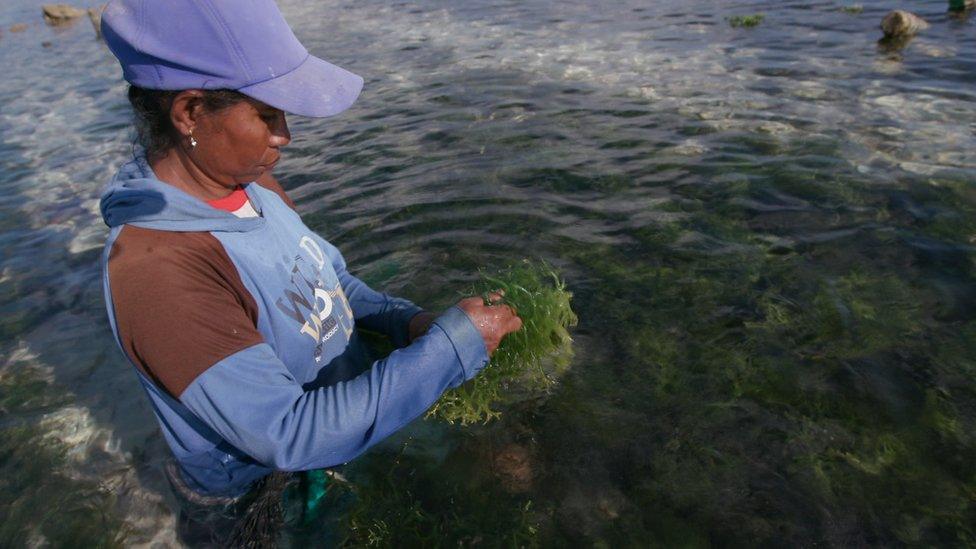
Indonesia is one of the largest seaweed producers in the world
More than 13,000 Indonesian seaweed farmers have launched a massive class action in Australia's federal court demanding compensation for the effects of Australia's worst oil spill.
In August 2009 there was a huge explosion at an oil well in Australian waters, external in the Timor Sea. The well was run by a subsidiary of the state-owned Thai oil firm, PTT Exploration and Production Public Company (PTTEP).
For more than 10 weeks enough oil to fill 10 Olympic-sized swimming pools spewed into the sea.
Indonesian seaweed farmers on Rote Island, 250km (155 miles) away from the well, say the disaster devastated their livelihood.
The BBC's Rebecca Henschke travelled to Rote Island to hear the stories of the people involved.
The seaweed farmers
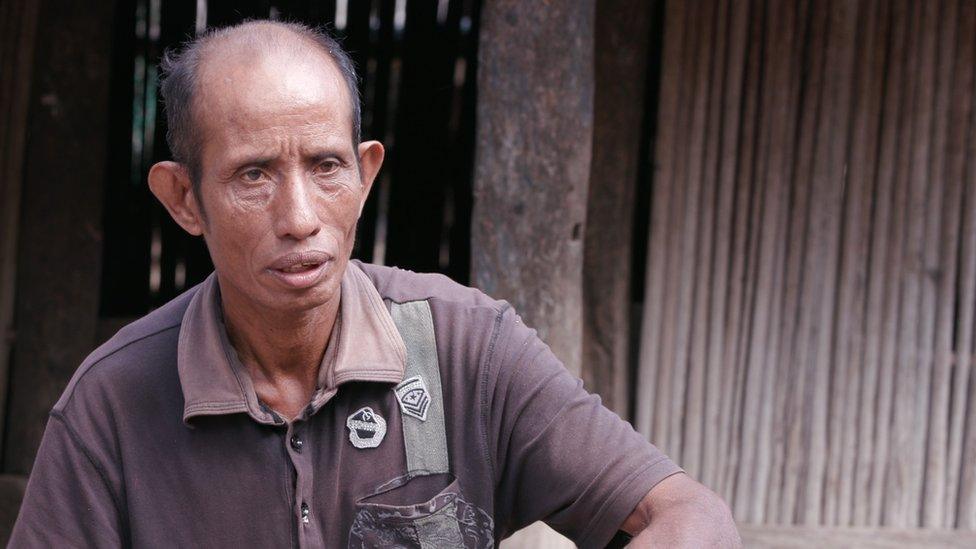
Daniel Sanda: "There were dead fish, too many to count"
Indonesia is one of the largest seaweed producers in the world. When Daniel Sanda moved from fishing into the industry he started earning more money than he had ever dreamed about.
In the years between 2001 and 2008 he was harvesting about 14 tonnes of seaweed a year and earning about 20,000 Australian dollars (£11,400; US$15,000) annually - a huge amount of money in terms of the island's economy.
It meant he could save and send his children to university, something unthinkable a generation ago.
But in September 2009 Daniel Sanda says something went very wrong.
"I had never seen anything like it. The colour of the water was like a rainbow. I didn't understand what was going on. The seaweed, too, had changed colour. There were dead fish, too many to count."
He says for the next four years all the seaweed they planted died.
"We felt cheated and robbed of our ability to continue to pay for our children's education," he says.
The lawyers
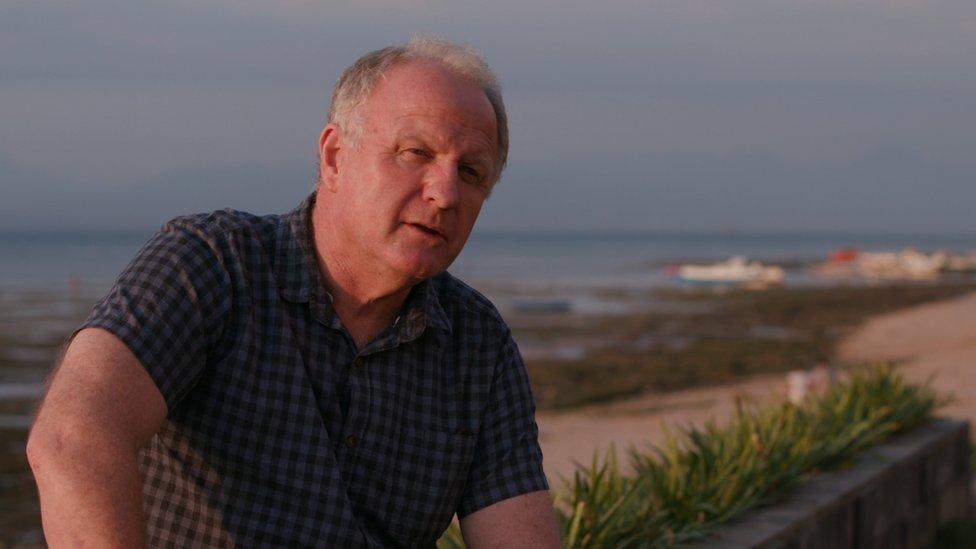
Lawyer Greg Phelps says the case from the seaweed farmers is "compelling"
Australian lawyers are seeking about A$200m for the loss of income that farmers like Daniel Sanda suffered as a result of the oil spill.
"It is a lot of money," says lawyer Greg Phelps, "but there are a lot of seaweed farmers and these seaweed farmers, for the first time in their existence, had businesses with returns as much as A$30,000 a year for a big seaweed farmer. That is considerable wealth in the terms of this economy."
Mr Phelps decided to take on the case after travelling to Rote Island and hearing the seaweed farmers' stories.
"The eyewitness testimony is very strong," he says.
"The more we looked into it the more compelling the case became and it was apparent that a very large area was affected by an extraordinary level of pollution."
Lawyers are suing PTTEP Australasia, a subsidiary of PTTEP. The class action is being paid for by Harbour Litigation Funding Limited - one of the largest litigation funders in the world.
The company
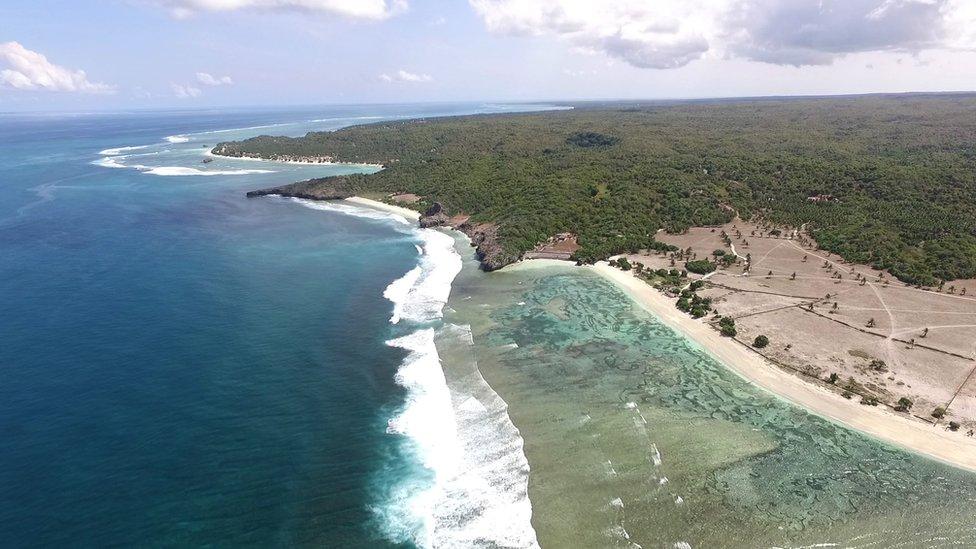
Rote Island is about 500km north-west from the Australian coast
PTTEP Australasia declined to give an interview to the BBC but in a statement said it had paid for "the largest independent scientific research program ever undertaken into the Timor Sea environment", which showed that no oil from the spill reached the shores of Indonesia.
It also said that the research showed "no lasting impact on the highly sensitive and biodiverse ecosystems in the areas closest to Indonesian waters".
However, the company told the BBC that none of its research or testing was done in Indonesian waters or around Rote, after it failed to reach an agreement with the Indonesian government for a permit.
But it said: "We are confident the results of these independent studies would stand up to the highest scrutiny, as would our assertion that it is reasonable to extrapolate from the studies that, if the reefs closest to Montara - where the oil and dispersant concentrations were at their greatest - did not show lasting impacts, then it is highly improbable that the seas and coastline of Nusa Tenggara Timor would have been impacted."
The activist
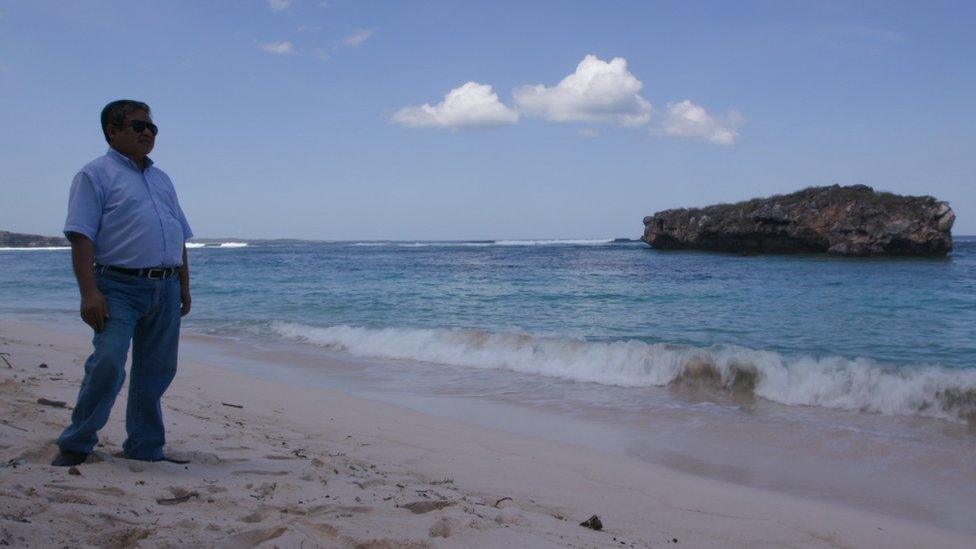
Ferdi Tanoni believes "the truth will win"
Indonesian activist Ferdi Tanoni has spent years fruitlessly lobbying both the Indonesian and Australian governments as well as the company to fund a proper environmental assessment of the impact.
For him, the fact that the case is now in court is a victory.
"It's a long-time struggle," he says. "But we are no longer alone. The seaweed farmers now have allies all over the world. I do believe in the justice system in Australia.
"That's why I want to take this to an Australian court. The truth will win no matter how long the fight is."
Lawyers are warning that the case could drag on for months or even years.
- Published5 February 2016
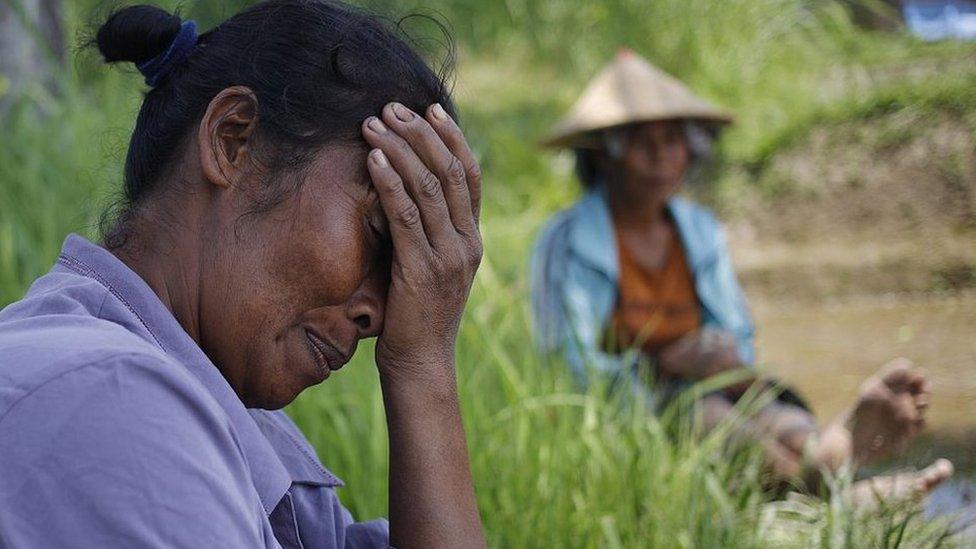
- Published17 March 2016
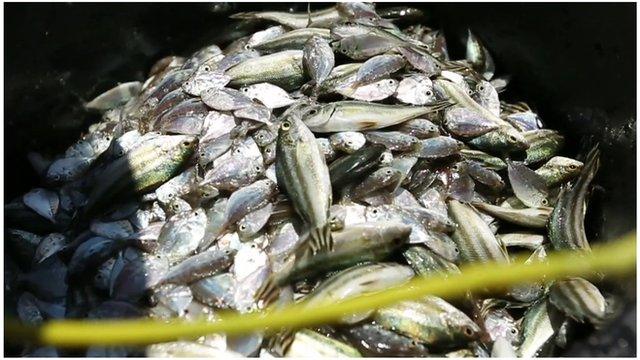
- Published24 November 2010